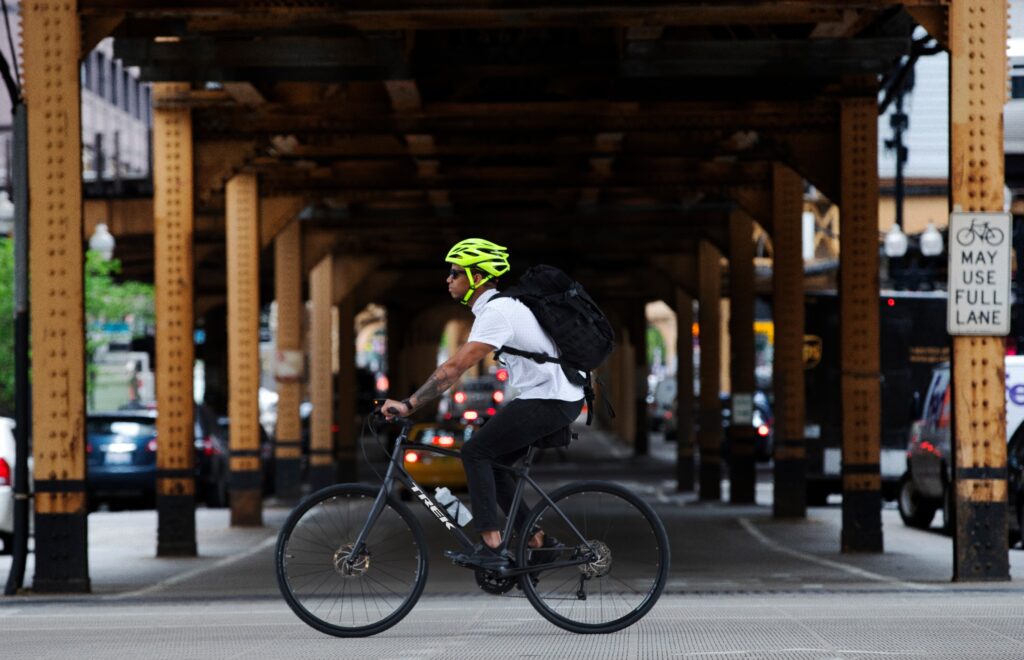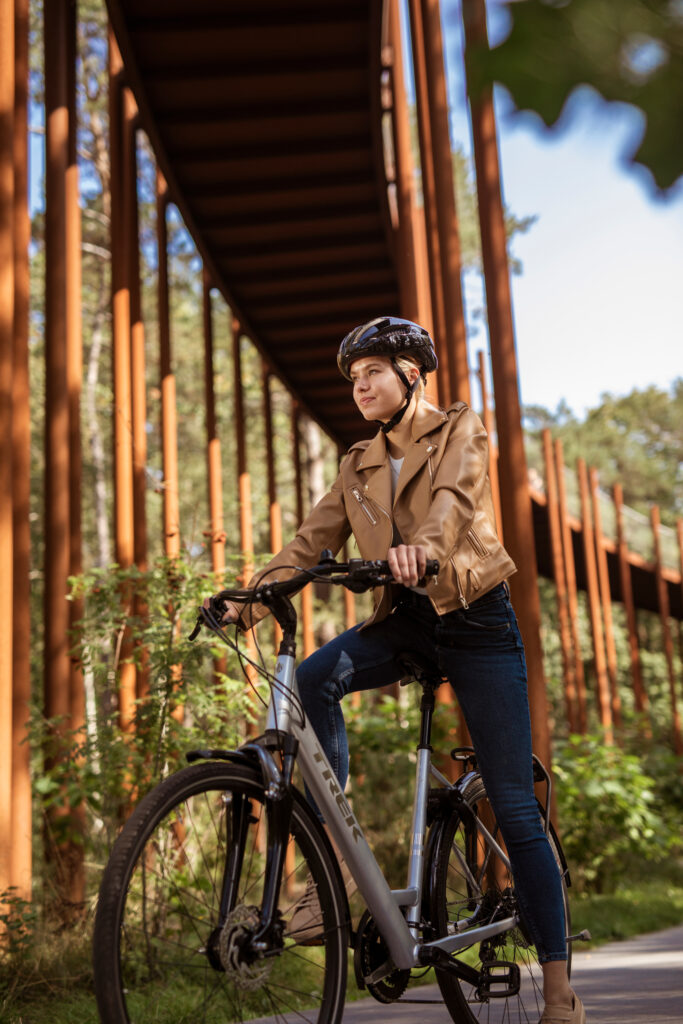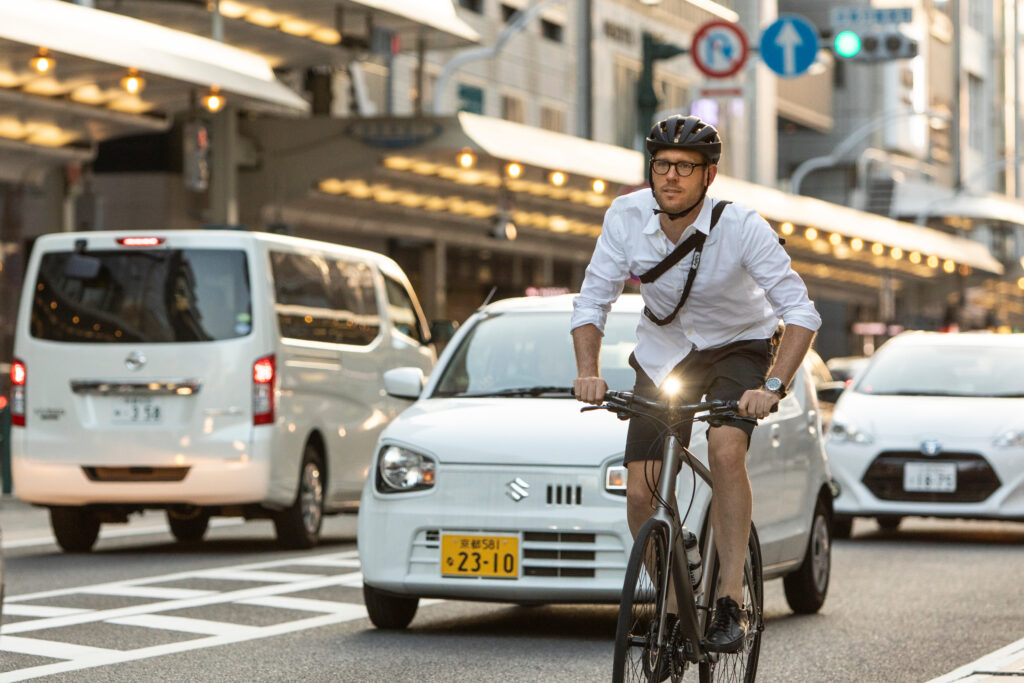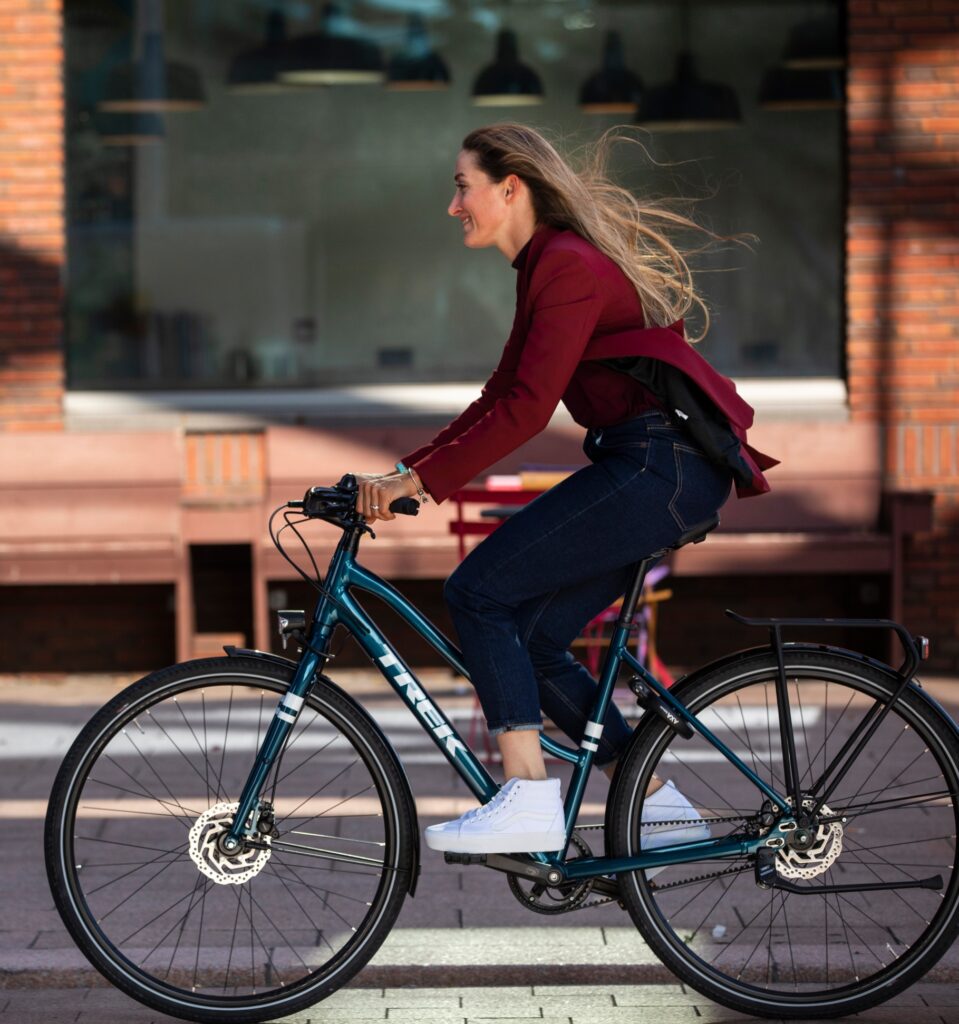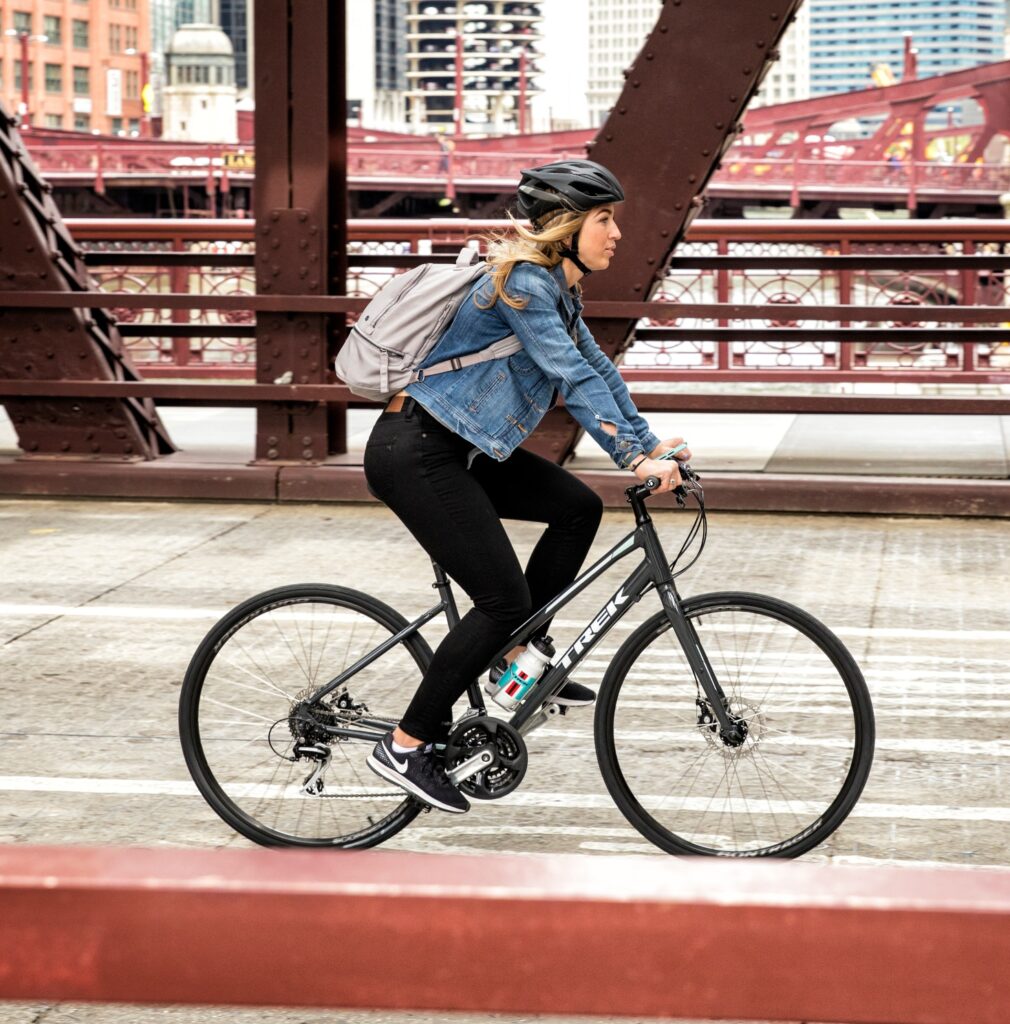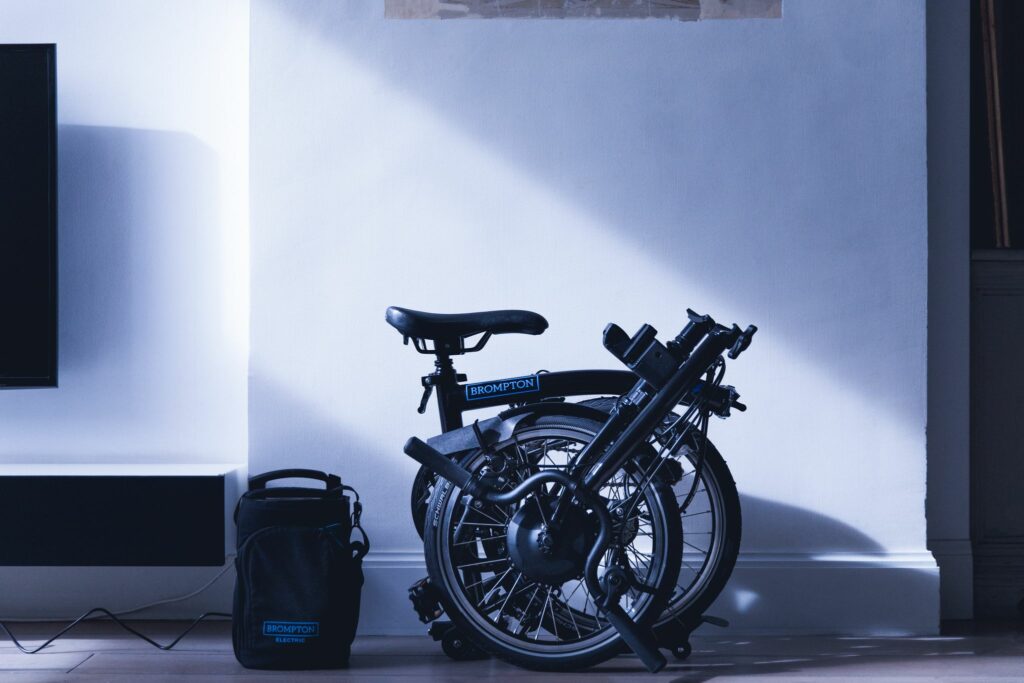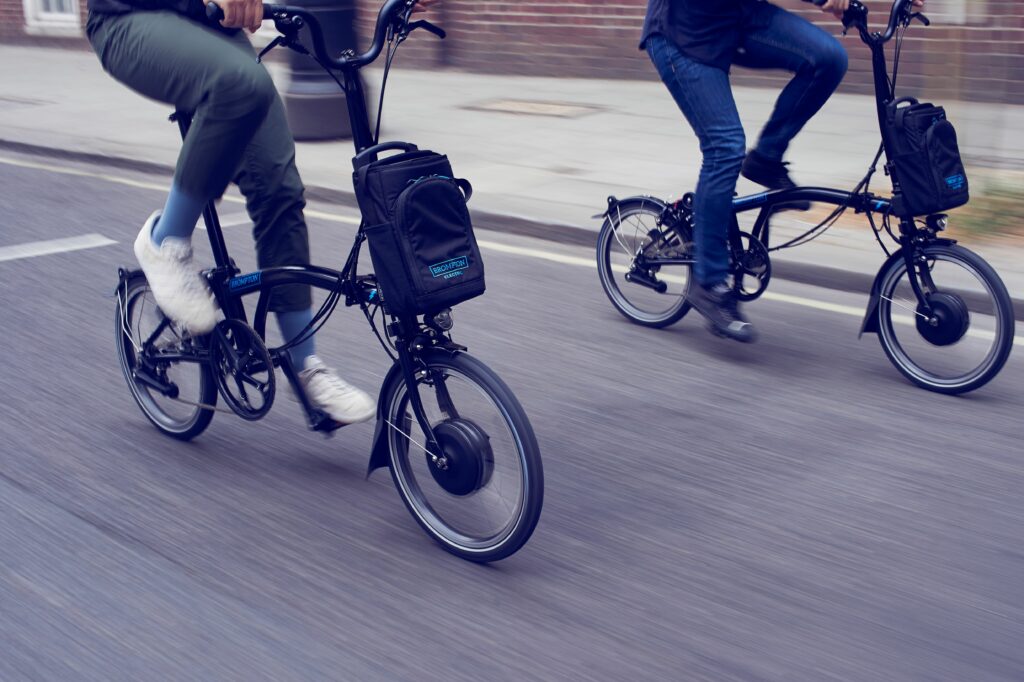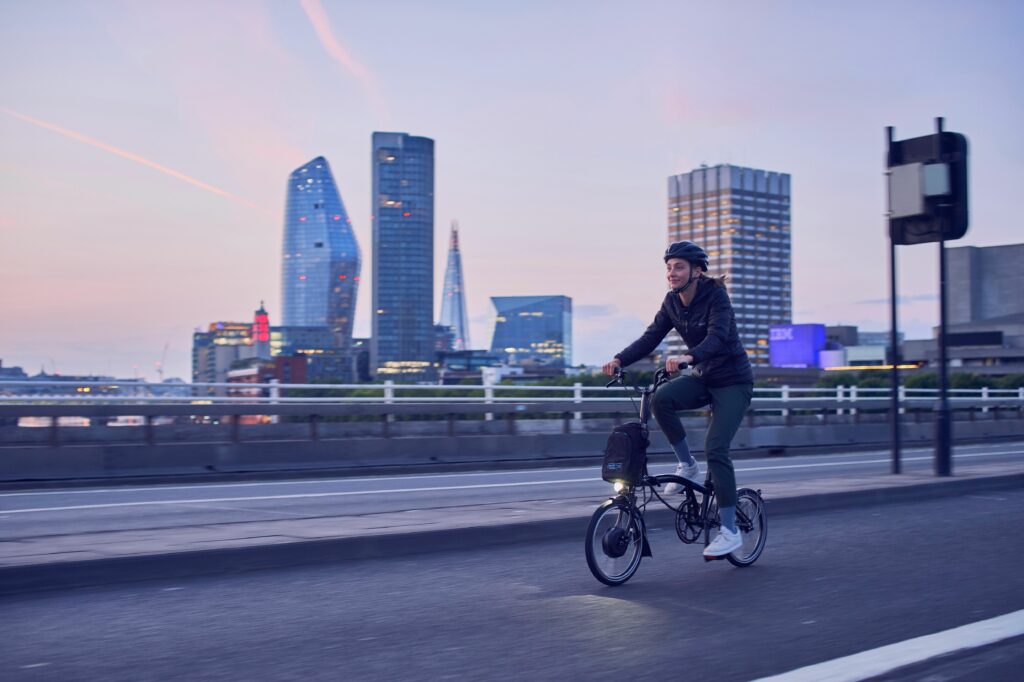The benefits of commuting to work on two wheels are numerous. Reducing your carbon footprint, improving your health, zipping past congested traffic and having the choice to avoid public transport are just a few.
Commute bikes are designed from the ground up to be comfortable, practical and easy to control. There is an extensive range of bikes to choose from; use our Commute Bike Guide to make an informed choice on which one is right for you.
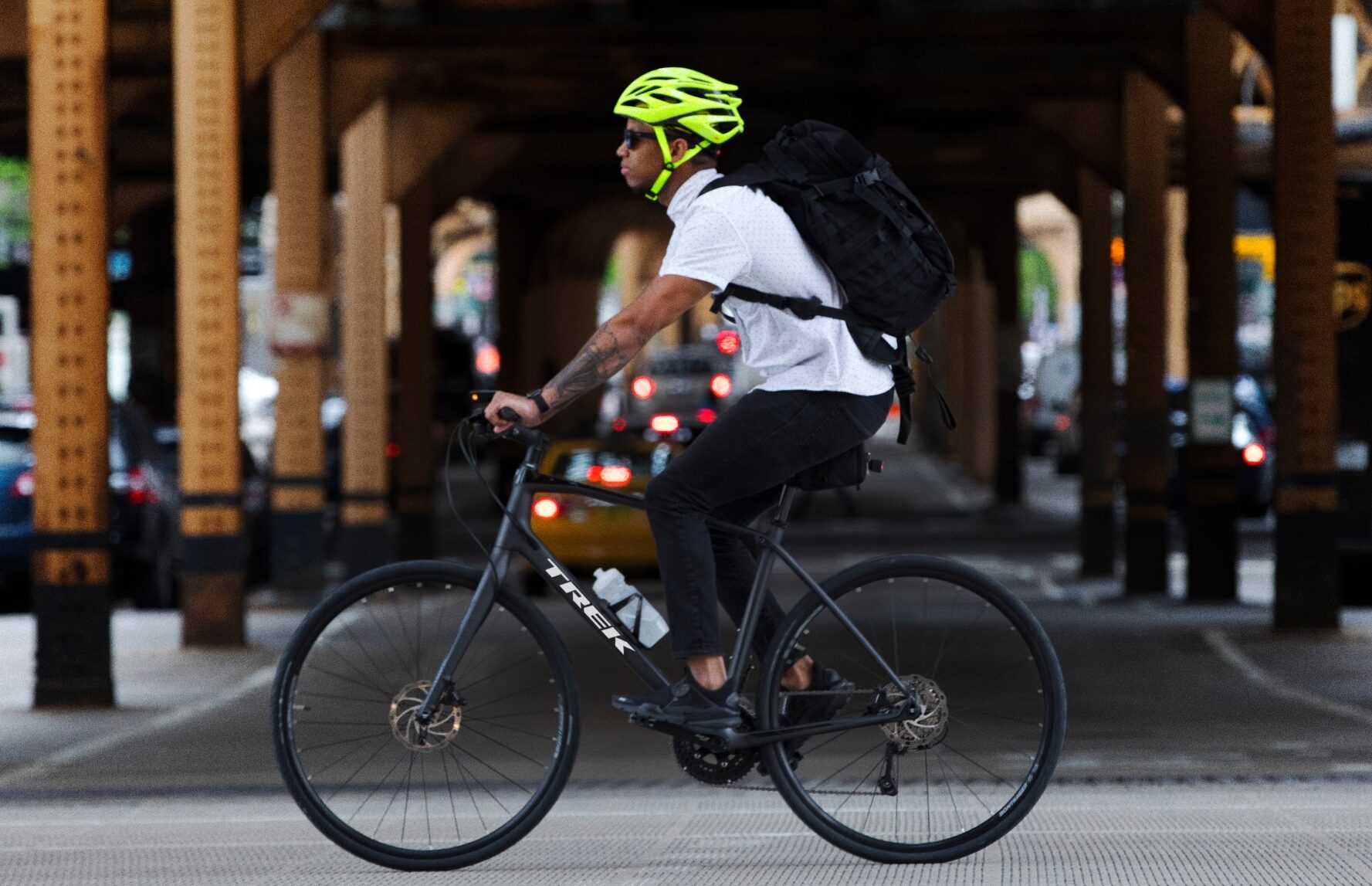
WHY GET A COMMUTE BIKE?
It has been widely reported that regular cycling can make us feel healthier and happier. A commute bike can allow you to get a workout without a gym membership and feel more productive, ready to start your day. Regular exercise and routine can benefit our mood and wellbeing whilst avoiding traffic and parking spaces can mean a reduction in early-morning stress. With the more recent push of Cycle to Work schemes and the incredible range available to the modern cyclist, there has never been a better time to embark on your own Commute bike journey.
Designed for Comfort and Convenience
Commute bikes come in many forms with different styles suited to different circumstances. The length of your commute and the terrain you will be traversing are important factors when choosing a bike. Comfort should also be a prime focus, with your frame, saddle and gear playing a crucial role in keeping you content on longer rides.
The correct accessories and appropriate gear will also enhance your commuting experience. Commute specific bikes often have exceptional space for panniers, saddlebags and racks which means securing your work bag or a change of clothes is effortless. Pannier bags mounted to a rear rack can be an excellent alternative to a rucksack, removing weight from your back and creating a large storage space that doesn’t impact your balance or overall comfort.
The wider saddles often found on Commute bikes allow for an upright riding position; providing better posture and ample visibility of the road ahead. The spacious handlebars of many commute bikes offer plenty of room for a GPS, cycle computer or phone mount.
It’s advisable to select a bike with the appropriate space for guards/fenders if you think they will be necessary, this coupled with appropriate waterproof gear will keep you protected whilst travelling in less than desirable weather conditions. Staying hydrated is key to any successful commute. Various cages, bottles and mounting solutions are available, with many frames allowing different mounting options depending on your own specific needs for clearance or convenience.
When traversing roads selecting lights and reflective gear for your journey is imperative. It’s just as important to stay visible to other road users as it is to spot hazards or potholes on your route. Repair kits and tools are a must with new innovation meaning these can even be stored within the handlebar or stem. Finally, the correct lock is an essential addition. Leaving your bike in confidence that it is secure is a must for any commuter.
E-BIKE COMMUTE
E-Bikes are taking Europe by storm and coming out of the niche and into the mainstream in the UK. In terms of commuting, an E-Bike enables you to zip past congested traffic, arrive at work less exhausted from longer journeys and makes it much easier to carry any additional bags and luggage.
E-Bikes put a greater load on tyres, these bikes are heavier and travel at far greater sustained speeds. This is counterbalanced with E-bike specific tyres, with increased weight, torque and tread wear all being considered. The wider tyres found on many commuter E-Bikes can soak up the vibrations from uneven roads, resulting in improved comfort and rolling resistance.
E-Bikes excel in enabling the rider to travel further afield, their added assistance makes a lengthy ride much more manageable. That said, an E-Bike still allows you to get fit – pedal-assist means exactly that, you still put in the effort but receive that added ‘assistance’ depending on the power you put in. E-bikes do not do all the work for you – but assist you in covering more ground and taking the weight off gruelling uphill climbs.
LEISURE
Leisure Bikes are concerned with enjoyment, fitness and exploration. Built to allow you to go at your own pace, this is the perfect bike to enjoy with a group or as a couple. Great for inner-city riding or just seeing the sights.
Leisure Bikes can refer to a wide array of bikes and their makeup is highly dependent on where you’re riding; be that roads, pathways, natural-surface trails or country lanes. A Touring Bike, for example, can feature a shorter and more upright top tube to increase the upright riding position. The more acute head angle found in these bikes will improve balance and handling, whilst allowing for more space for attachments and pannier bags.
HYBRID
A Hybrid Bike is Mountain Bike inspired whilst having some of that hardy Road Bike feel. The upright position you expect from a Commute is here, but with the flat handlebars of a more Road specific bike. Hybrid Bikes can have suspension forks but many are provided without. Suspension can add weight to the bike making pedalling less efficient. If most of your commuting will be on flat roads then suspension can usually be left out of the picture.
The wheels of a Hybrid Bike are not as slim as those found on their Road Bike counterparts but aren’t as wide as your standard Mountain wheel – making it a good all-rounder for differing terrain and weather conditions. Hybrids are designed to provide lots of space for accessories and attachments. They don’t always stack up to Road Bikes when it comes to longer distance rides but remain incredibly versatile bikes.
FOLDING
Multimodal commuting has become a buzzword in the cycling industry, but all it basically means is completing your journey by one or more modes of transport. A Folding Bike is ideal if your journey is partially by train or bus. Incredibly easy to store away and (in most cases) easy to carry and transport, you can complete your journey partially and let public transport do the rest.
Folding bike wheel size can vary greatly with some featuring 16 inch to 20 inch wheels. Smaller wheels can have a higher rate of acceleration and are fine on shorter journeys but are not as speedy or confidence-inspiring as their larger counterparts. A smaller wheel, however, means more accurate steering which can be an advantage in built-up inner-city areas. Folding Bikes are superb for shorter journeys, with their E-Bike counterparts being able to handle even more. Brompton folding E-Bikes deliver maximum accessibility, easy storage and manoeuvrability on the roads. Tern also provides excellent Commute E-Bike solutions, diminutive in stature but providing impressive hauling capabilities, perfect for a trip to the shops or attaching a work bag to one of its modular racks.
MOUNTAIN COMMUTE
A Mountain Bike is excellent if your commute passes through country lanes or any truly rugged terrain. The main advantage over other types of bikes is the addition of suspension to soak up any particularly nasty bumps in the road. This does mean that the overall weight of your bike will be greater and it also leaves less free space for attachments and accessories.
The less grippy, knobbly tyres found on these bikes are not always ideal for roads or an inner-city commute. However, if your commute passes through mixed terrain or you want to take an alternative route then a Mountain Bike would be fitting for your needs.
Mountain Bike tyres offer different tread patterns which greatly impact performance on different terrains. Smaller and more densely placed knobs will result in faster rolling speeds but can negatively impact your grip. The tyre pressure can also affect the quality of your ride, with lower pressures able to establish better contact with the surface it is rolling over. This can mean better grip but an increase in rolling resistance, decreasing your speed. Higher pressures run faster and smoother on roads but will be sensitive to uneven surfaces, sometimes negatively influencing your handling and comfort.
ROAD COMMUTE
A Road Bike is superior at covering the greatest distances on flat tarmac roads and bike paths. Road Bikes allow for much higher speeds and are built to help you maintain that speed with relative ease. The forward-leaning position differs from the upright Hybrid/Touring bikes but is far more aerodynamic.
Cheaper models may do the job for a standard commute but a Carbon frame will result in a much more lightweight bike with a stiffer feel and greater longevity. Road Bike tyres are slick and don’t provide much rolling resistance, this results in your commute having its optimal return in speed for the amount of energy you put in.
Depending on the tyres, rougher terrain should be avoided. Cyclocross and gravel bikes offer some of the same advantages as Road bikes – but are better equipped for less predictable terrain. Their versatility really shines through in their road-like construction that still often leaves space for mudguards and racks.

SUMMARY
A wide choice of Commute Bikes are available to suit your own personal needs, but the only way to work out which model is correct for you is by considering a variety of factors. How far is your commute and what route will you be taking? What included features do you require and what is your overall budget?
The best way to come to a decision is to speak to an expert or even try out the bike before you purchase.
Leisure Lakes Bikes offers the best in customer care, an unrivalled choice and a highly personalised sales service. Our in-store expertise across our 11 UK outlets, free E-bike test rides and aftercare are what sets us apart.
Don’t just take our word for it, click here to see what our customers think of our products and customer service.

